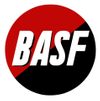
File photo of a ready-made garments factory in Dhaka, Bangladesh
BGMEA, the owners' platform, has proposed Tk6,360
Ready-made garment (RMG) workers have called for their minimum wage to be more than doubled in order to meet the rising costs of living in the country.
Workers-nominated representative Shamsun Nahar Bhuiyan placed the proposal to raise the baseline monthly salary from Tk5,300 to Tk12,020 before the Minimum Wage Board for the industry during a meeting on Monday.
“The prices of essential commodities has increased; so has the gas and electricity tariffs,” Shamsun said.
“It has now become quite impossible for an RMG worker to provide for his or her family with the existing wage.”
Representing the RMG business owners at the meeting, Bangladesh Garment Manufacturers and Exporters Association (BGMEA) President Md Siddiqur Rahman proposed to raise the minimum wage to only Tk6,360 per month.
“We have taken 11 issues, including inflation, into consideration to decide the minimum wage for RMG workers,” he said. “I hope through negotiation we will reach a consensus to set the minimum wage, where the industry’s capacity and the workers’ needs will both be taken into account.”
The BGMEA president did not explain why the owners were proposing only Tk6,360 for the minimum wage, when it will stand at around Tk7,000 this year if the previous wage board is followed.
The previous RMG wage board, formed in the aftermath of the Rana Plaza collapse in 2013, set Tk5,300 as minimum wage with the basic salary of Tk3,000 for entry-level garment workers and a 5% yearly increment (cumulative) on the basic amount.

Both the proposals placed on Monday were rejected by workers’ leaders, who said neither were realistic and were insufficient to meet the basic needs of the RMG workers.
Speaking to reporters after the meeting on Monday, Minimum Wage Board Chairman Syed Aminul Islam confirmed that the board had received the proposals from the workers’ and owners’ representatives.
“After reviewing the proposals, the board will recommend a minimum wage for the workers,” he said.
The workers’ representative’s proposal set Tk7,050 as the basic salary for the minimum wage of Tk12,020 in the seven-grade wage structure. For all RMG workers, the house rent was set at 40% of basic salary, while medical allowance was proposed to be Tk1,000, transport allowance Tk500, and meal allowance Tk650.
Shamsun also proposed a 10% annual increment, 20% of the basic salary for a festive bonus on the Bangla New Year, Tk500 for children’s education expenses, and Tk200 for laundry allowance.
The BGMEA proposed a five-grade wage structure which set Tk6,360 as minimum wage with the basic salary of Tk3,600. The house rent will be set at 40% of basic salary, while all RMG workers will get Tk300 for medical allowance, Tk240 for transportation, and Tk780 for meal allowance.

The current Minimum Wage Board for the RMG industry was formed by the government on January 13 this year, with the directive to formulate a new minimum wage structure for apparel workers within six months.
Rights groups, worker’s leaders unhappy
Leaders of several RMG workers’ platforms expressed displeasure at the new minimum wage proposed by the workers’ representative, saying it was not in line with what the leaders had recommended, which was Tk16,000.
“I reject this proposal as it does not reflect the needs of the workers; what was proposed by the owners is even worse,” Nazma Akter, president of Sommilito Garments Sramik Federation and a former workers’ representative to the wage board, told the Dhaka Tribune.
“It is also not clear to me as to why the workers’ representative proposed Tk12,020 as a minimum wage instead of Tk16,000.”
Nazma said representatives from all trade unions decided on Tk16,000 for the new minimum wage, and they had urged the representative to propose it to the board.
“If our original proposal had been placed before the board, we could have gotten a good deal though negotiation,” she said.
“I would like to know based on which recommendation did the workers’ representative proposed Tk12,020 as minimum wage.”
Shamsun Nahar, the workers’ representative, rejected her proposal, saying it had to be achievable.
“The wages cannot be increased in such a way that could lead to workers losing their jobs,” he said. “I had to place a realistic proposal – one that could be implemented. That is why I proposed Tk12,020 as minimum wage.”

Members of different rights groups and think tanks also said the new wage structure had to be in line with the RMG workers’ needs, and urged the RMG business owners to be reasonable.
“The wage board has been formed to increase workers’ wages considering the present living cost and the economic status of the country, but what the owners’ representative proposed is less than what the current wage is,” Syed Sultan Uddin Ahmmed, executive director of Bangladesh Institute of Labour Studies, told the Dhaka Tribune.
“I think the RMG factory owners should be serious about the welfare of the workers who are leading the economic growth of the country.
“Based on our survey in several areas, we have found that a family needs about Tk16,000 to be able to meet all basic needs. Whatever the amount of the minimum wage is, it should be set through a negotiation between the workers’ and the owners’ representatives,” he added.
Trade analysts also believe the proposal placed by the workers’ representative is reasonable.
“During the demonstration for minimum wage, RMG workers demanded Tk16,000 as minimum wage, but the workers representative proposed a minimum wage of Tk12,020,” Khondaker Golam Moazzem, research director at Dhaka-based think tank Centre for Policy Dialogue (CPD), told the Dhaka Tribune.
“The workers’ leader considered living costs, yet was generous towards the owners.
“I think there is space for negotiation to reach a common ground to set the amount, which can provide a comfortable life for RMG workers.”

